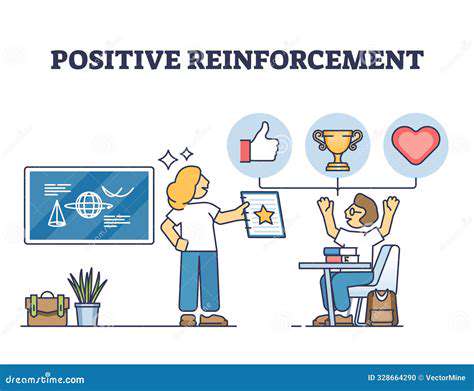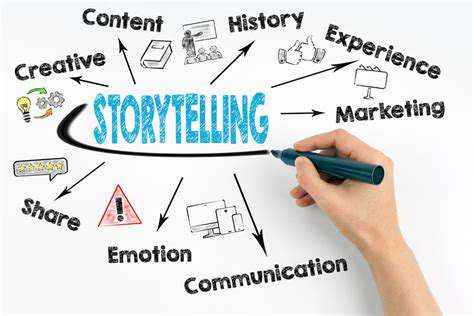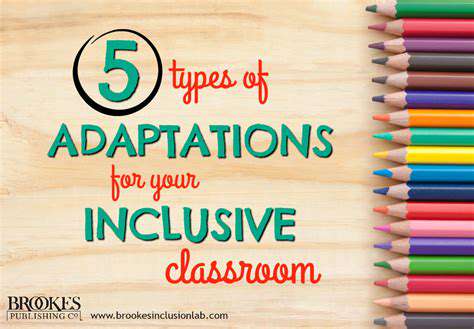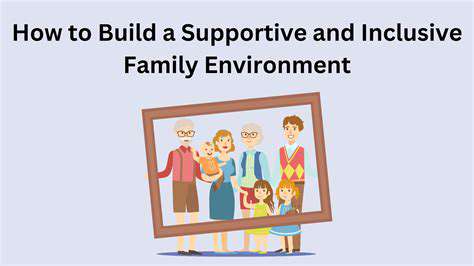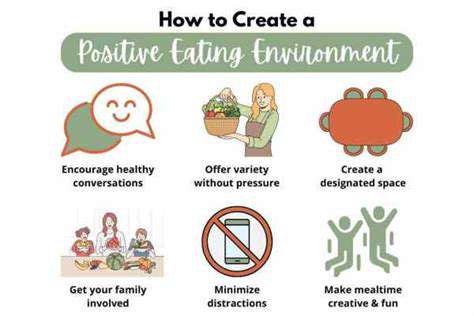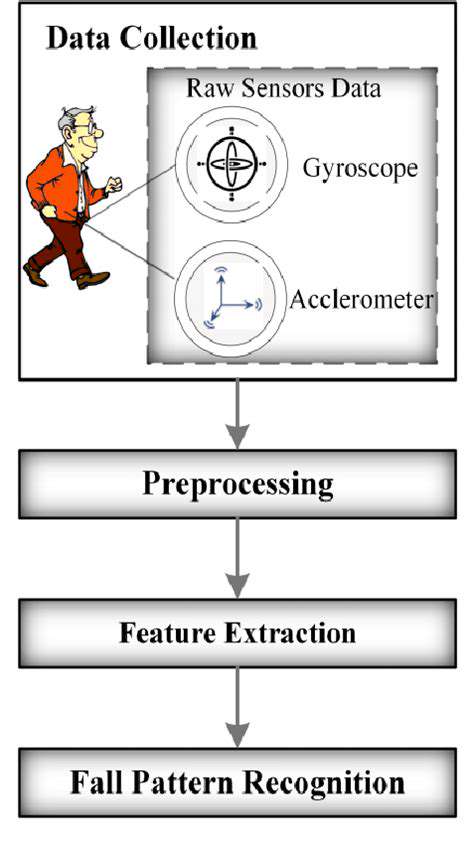Kiedy szukać profesjonalnej pomocy dla dzieci?

Understanding Developmental Delays
Developmental delays are a common concern for parents and caregivers, especially during the crucial early years of a child's life. They represent a significant difference between a child's developmental milestones and those typically expected for their age group. These delays can affect various areas of development, including physical, cognitive, social, and emotional skills.
Recognizing the signs of a potential delay is crucial. This often requires close observation and understanding of typical developmental patterns. Parents and caregivers play a vital role in recognizing potential issues and seeking professional help when needed.
Types of Developmental Delays
Developmental delays can manifest in various forms and affect different aspects of a child's development. A delay in physical development, for example, might involve difficulty sitting or walking independently. In contrast, a cognitive delay could be evident in challenges with language acquisition or problem-solving skills. Social and emotional delays can also occur, impacting interactions and emotional regulation.
It's important to note that delays can vary significantly in severity, impacting each child uniquely.
Possible Causes of Developmental Delays
The underlying causes of developmental delays are diverse and complex. They can stem from genetic factors, such as inherited conditions or syndromes. Prenatal and perinatal factors, including complications during pregnancy or childbirth, can also contribute. Postnatal factors, such as infections or illnesses, can also significantly impact a child's development.
Environmental factors, such as socioeconomic status and access to resources, also play a critical role. These factors can significantly influence a child's access to appropriate stimulation and support throughout their development.
Identifying Developmental Delays
Early identification of developmental delays is paramount for effective intervention and support. Professionals, such as pediatricians, developmental therapists, and psychologists, can conduct comprehensive assessments to determine whether a child is experiencing delays. These assessments often involve evaluating various developmental domains, including motor skills, language, cognition, social-emotional skills, and adaptive behavior.
Regular check-ups with a pediatrician are vital, allowing for early identification of any potential concerns.
Intervention Strategies
Early intervention plays a crucial role in supporting children with developmental delays. Intervention strategies often involve a multidisciplinary approach, bringing together professionals from various fields to provide comprehensive support. This can include therapies like physical therapy, occupational therapy, speech therapy, and educational interventions tailored to the child's specific needs.
Parents and caregivers are integral to the intervention process, learning strategies to support their child at home and foster their development.
Importance of Early Intervention
Early intervention is critical for maximizing a child's potential and enabling them to reach their developmental milestones. Early intervention programs can significantly impact a child's cognitive, social, and emotional development, setting the stage for future success. These programs can also help families navigate the challenges of raising a child with developmental delays, providing valuable support and resources.
Resources and Support Systems
Several resources and support systems are available to families dealing with developmental delays. These resources range from local organizations and support groups to government agencies offering services and assistance. Connecting with other families facing similar challenges can provide invaluable emotional support and practical advice. Seeking professional guidance and support is often essential, allowing families to gain a better understanding of available resources and develop a plan for their child's needs.
Accessing these resources is often a crucial step in navigating the challenges and providing appropriate support for the child.
Behavioral Challenges and Emotional Distress
Identifying Behavioral Challenges
Recognizing behavioral challenges in children can be tricky, as normal childhood development often involves periods of testing boundaries and emotional expression. However, consistent patterns of disruptive behavior, such as aggression, defiance, or withdrawal, might indicate an underlying issue. These behaviors could manifest in various ways, from temper tantrums and disobedience to social isolation and difficulty concentrating. Observing these patterns over time, and noting the context in which they occur, is crucial for determining if intervention is needed.
It's important to differentiate between occasional misbehavior and persistent, concerning patterns. Consider if the behavior is impacting the child's ability to function in school, at home, or with peers. Does the child struggle to follow rules, or experience difficulties with social interactions? These are important questions to ask when assessing the situation.
Understanding Emotional Distress
Emotional distress in children can present in various forms, ranging from sadness and anxiety to fear and anger. A child experiencing emotional distress might exhibit changes in their mood, behavior, or physical health. They may become withdrawn, irritable, or have difficulty sleeping or eating. Often, these emotions are responses to significant life changes, such as a family move, the loss of a loved one, or a change in school.
It's crucial to pay attention to subtle cues and changes in a child's emotional state. Is the child expressing feelings of sadness or anxiety more frequently or intensely than usual? Are there changes in their usual interactions and play habits? Understanding these subtle changes can help in recognizing and addressing underlying emotional distress.
Impact on Learning and Development
Behavioral challenges and emotional distress can significantly impact a child's learning and development. When a child is struggling with these issues, they may have difficulty concentrating in class, interacting with peers, and completing schoolwork. This can lead to academic difficulties and decreased motivation. A child who is constantly worried or anxious might also struggle with their cognitive abilities and problem-solving skills.
Furthermore, these issues can affect a child's social-emotional development. They may have trouble forming healthy relationships, understanding social cues, and managing their emotions effectively. Addressing these challenges early on can help foster healthy development and support their academic journey.
Parental Stress and Strain
Dealing with a child's behavioral challenges and emotional distress can be incredibly taxing for parents. The constant pressure, worry, and frustration can lead to significant parental stress and strain. Parents may feel overwhelmed, helpless, or even guilty. It's essential for parents to acknowledge the toll that these challenges can take on their well-being and seek support when needed.
School and Social Environment Factors
The school environment and social interactions can play a significant role in a child's behavioral and emotional well-being. Bullying, peer pressure, academic difficulties, and stressful school transitions can all contribute to emotional distress and behavioral problems. Understanding the child's social environment and any potential stressors is crucial in identifying the root causes.
Seeking Professional Support
When concerns about a child's behavior or emotional well-being persist, seeking professional help is often the best course of action. A qualified therapist, counselor, or psychologist can provide a comprehensive assessment and develop a tailored treatment plan. They can help parents understand the underlying causes of the challenges and equip them with effective strategies for managing the situation.
When Professional Help is Necessary
While occasional behavioral issues are normal, persistent or severe problems warrant professional intervention. If a child's behavior is significantly impacting their daily life, relationships, or school performance, or if there are concerns about potential underlying mental health conditions, seeking professional help is crucial. If you notice significant changes in mood, behavior, or functioning, reaching out to a professional is essential to ensure the child receives the appropriate support and care.
Social and Emotional Learning Difficulties
Identifying Early Warning Signs
Recognizing early warning signs of social and emotional learning difficulties is crucial for timely intervention. These signs often manifest in subtle ways, such as persistent difficulty understanding and responding to social cues, frequent outbursts of anger or frustration, or a reluctance to engage in social activities. Parents and educators should pay close attention to changes in a child's behavior, even seemingly minor ones, as these can often signal underlying issues that require professional attention.
Children who struggle to regulate their emotions, who consistently exhibit aggressive behaviors, or who isolate themselves from others may be experiencing social and emotional learning challenges. It's important to remember that every child develops at their own pace, but concerning patterns warrant further investigation.
Understanding the Impact on Daily Life
Social and emotional learning difficulties can significantly impact a child's daily life, affecting their academic performance, relationships with peers and family, and overall well-being. Children struggling with these difficulties may experience difficulties concentrating in class, have trouble making friends, or exhibit disruptive behaviors in social settings. These challenges can create a sense of isolation and frustration for both the child and their caregivers.
Furthermore, these difficulties can lead to negative self-perception and a decreased sense of self-efficacy, impacting their ability to navigate future challenges and develop healthy relationships.
The Role of Family Dynamics
Family dynamics play a significant role in a child's social and emotional development. A supportive and nurturing environment can foster emotional resilience and social competence. Conversely, family conflicts, unresolved tensions, or inconsistent parenting styles can contribute to social and emotional learning difficulties in children. Open communication, empathy, and a willingness to address family issues constructively can be crucial in creating a positive and stable environment for children.
Recognizing Academic Challenges
Difficulties in social and emotional learning can manifest in academic performance as well. Children who struggle to regulate their emotions may have trouble focusing in class, completing assignments, or participating in group activities. They may also experience increased anxiety or stress related to social interactions or academic pressures. These academic struggles can further exacerbate the emotional challenges and contribute to a cycle of difficulty.
Exploring Potential Underlying Causes
Identifying the potential underlying causes of social and emotional learning difficulties is crucial for developing effective interventions. A variety of factors can contribute, including genetic predispositions, neurological differences, environmental influences, and past experiences. These factors can interact in complex ways, highlighting the need for a thorough evaluation to understand the specific needs of each child.
Seeking Professional Guidance
When concerns about social and emotional learning difficulties arise, seeking professional guidance is essential. A qualified therapist, psychologist, or counselor can conduct a comprehensive assessment and develop an individualized intervention plan tailored to the child's unique needs. This professional support can provide valuable insights, strategies, and tools to address the specific challenges and promote positive development.
Early intervention is key to maximizing the potential for positive outcomes. Don't hesitate to reach out to professionals if you have concerns about your child's social and emotional development.

